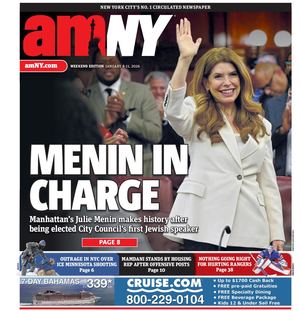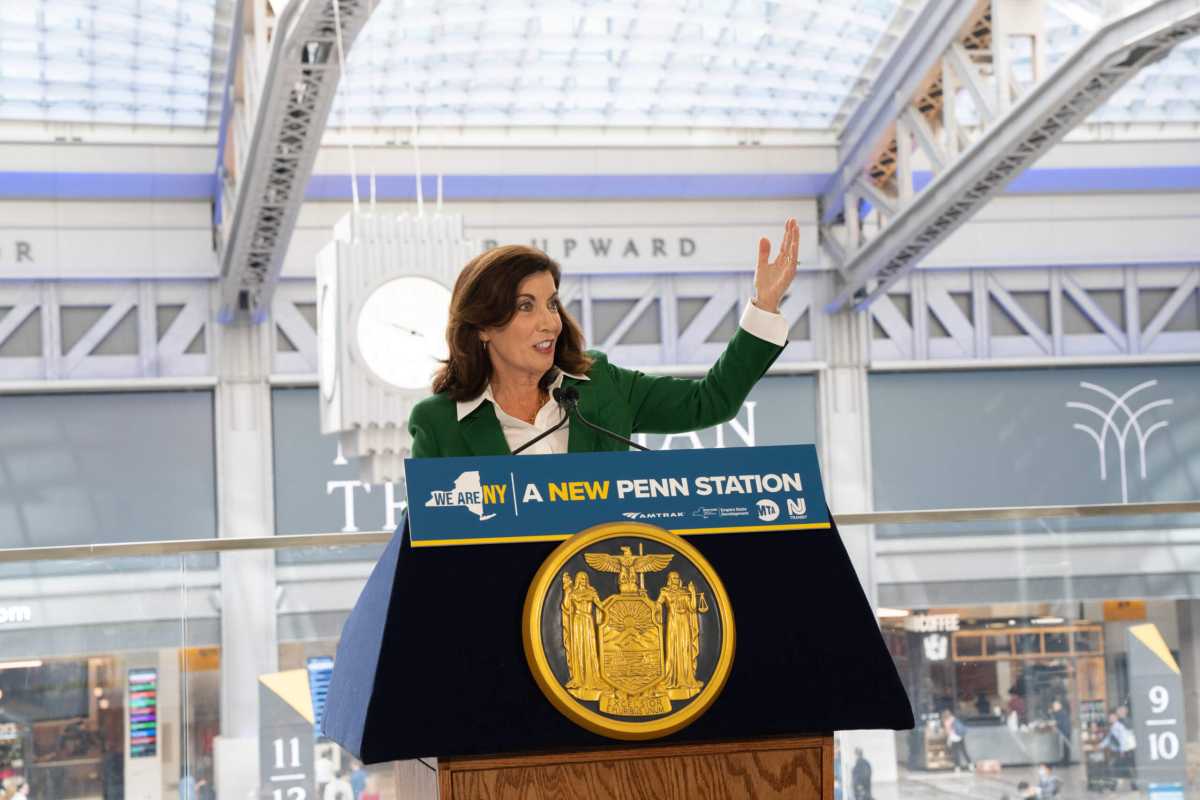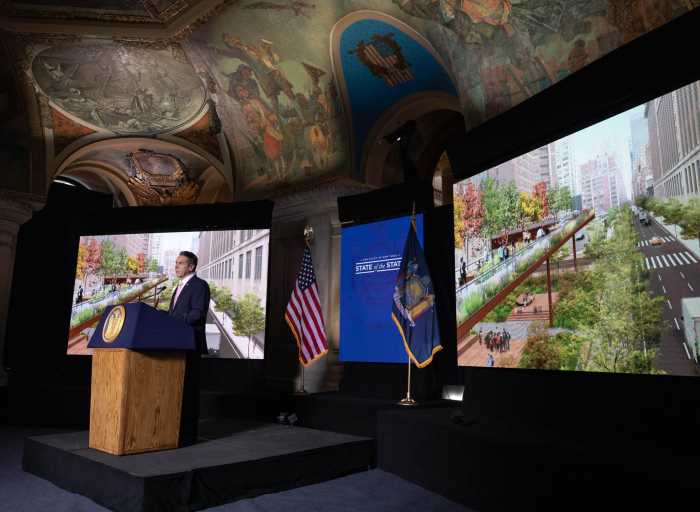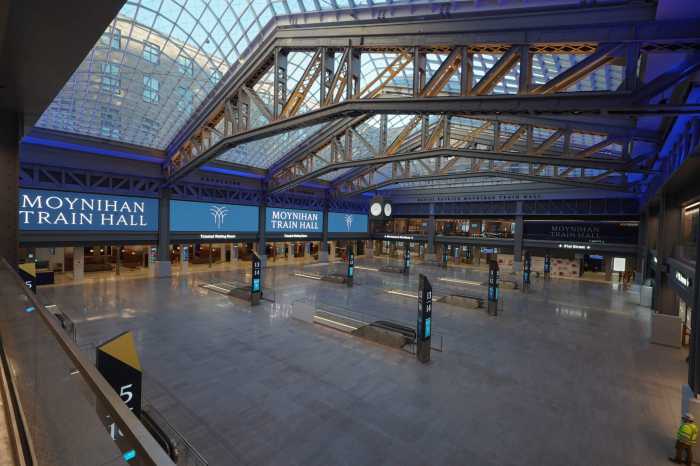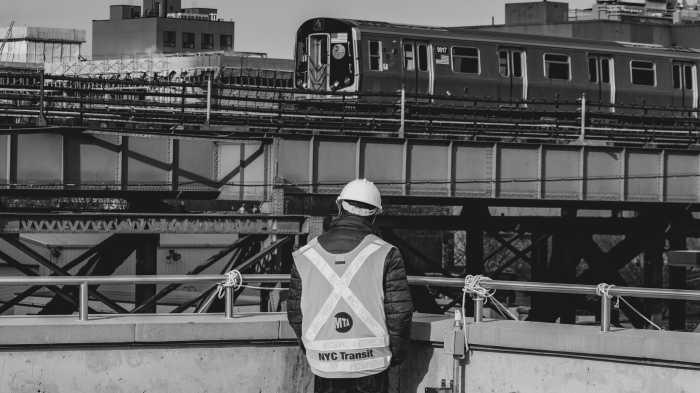The state’s Public Authorities Control Board green-lit Governor Kathy Hochul’s contested Penn Station plan Wednesday, July 27, clearing a major hurdle for the redevelopment project to move forward.
The obscure oversight panel consisting of representatives from the governor and the state legislature in Albany voted unanimously to allow the state to let developers around the transit hub to forego city property taxes and pay the state fees to partially fund renovations at the busy transit hub.
“For far too long, Penn Station has been an overcrowded, cramped, and neglected mess. This vote is a major milestone in our plan to fix Penn Station and transform the surrounding neighborhood,” Governor Hochul said in a statement. “New Yorkers deserve a station they can be proud of, quality affordable housing to call home, walkable streets and sidewalks, and easy access to transit. This plan will provide all of that and more.”
The deal paves the way for developers to erect 18 million square feet — about the size of Hudson Yards — of new towers with mostly office space along with 1,800 new apartments, up to 708 of which could be income-restricted.
The developments will help pay for part of a $7 billion makeover of Penn Station, knocking down an upper floor to create a more light-filled space, along with a concourse connecting to the Herald Square subway complex.

The plan also calls for bike lanes, more pedestrian-friendly streets, and new plazas around the train terminal, along with accessibility upgrades to nearby subway stations like elevators and escalators.
A portion of the money would help fund a future $13 billion expansion of Penn Station to the south.
Instead of city property taxes, developers will make so-called Payments in Lieu of Taxes, or PILOTs, to the state.
Most of the money for the overhauls would still have to come from the public purse via New York State, New Jersey, and the federal government, but state officials argued that the PILOTs were the best way to get a buy-in from Washington.
“For decades there has been talk of building a new Penn Station, but now we have a once-in-a-generation opportunity to deliver a station worthy of the greatest city in the world,” said Mayor Eric Adams. “Future generations of New Yorkers will see the new Penn Station as proof that New York City can achieve big things, even during challenging times.”
Adams gave his blessing to a “financial framework” for the PILOT plans last week.
Good government groups and senior state officials have repeatedly sounded the alarm that the project could cue up $1.2 billion in tax breaks for developers — including a political donor of Hochul’s — and due to its lack of financial transparency proving that the project couldn’t be funded without huge developer handouts.
Vornado Realty Trust owns or leases the majority of the project sites, and its chief executive Steven Roth donated the maximum allowable amount to Hochul soon after she revived the Andrew Cuomo-era scheme late last year.
State lawmakers on the PACB chose not to veto the proposal, with the representative for the upper chamber Queens State Senator Leroy Comrie saying that the panel will still be able to be a check as the state sets up PILOT agreements with real estate bigwigs.
“I will not vote in favor of any future PILOT agreements for individual above-ground buildings in this project footprint until we have secured necessary federal approvals and the fair share of funding from the federal government and New Jersey,” Comrie said in a statement.
“Today’s vote is only on the PILOT agreement between the City and the State. It is the first step towards building a framework for a multi-decade redevelopment plan,” he added. “Today’s vote is not the final say on this massive undertaking. Future review and votes will be required, both by the PACB and the MTA Capital Program Review Board (CPRB).”
The PACB representative for the State Assembly, Westchester County Assembly Member Amy Paulin, recused herself from the vote, citing a conflict of interest of her husband having a client doing business with Vornado.
Her stand-in, Philip Fields, a budget official for the Assembly and local rep for upstate Schenectady County, voted in favor.
State officials with Empire State Development, the authority overseeing the project, haven’t given specific estimates of what they expect to generate from developers or how much taxes the city will lose out on.
Notably, Penn Station was the only item on PACB’s agenda item without a dollar amount attached, putting its cost simply at “N/A.”
ESD finally published some numbers Tuesday, a day ahead of the vote, which said they expect to rake in up to $3.75 billion from the PILOTs out of $22 billion for several Penn Station overhauls, including a future expansion with additional tracks.
But those figures were just the maximum amounts ESD plans to negotiate with the developer, and the document still omitted key details, transparency advocates charged.
State Comptroller Thomas DiNapoli’s office published a letter to the PACB the day of the vote calling on them to postpone the decision until they have more information, but the 11th-hour missive failed to sway the politicians.
“Available details on the current financing plan are extremely limited,” wrote Nelson Sheingold, a lawyer for the state’s top accountant. “Given the complexity and financial risks of the project the Public Authorities Control Board should take additional time to determine that sufficient information and funding commitments are in place.”
Watchdogs at Reinvent Albany blasted the vote as “farcical” for still lacking important details.
“Let us get this straight: according to statements from some elected officials, today’s PACB vote means nothing, but had to happen so Penn Station could get federal funds,” the group wrote in a statement.
“How low will the Senate and Assembly let the Governor go to deliver this deal to Vornado? Does anyone really believe the federal government is going to provide billions in aid based on financial ‘plans’ that literally contain no dollar figures?”
